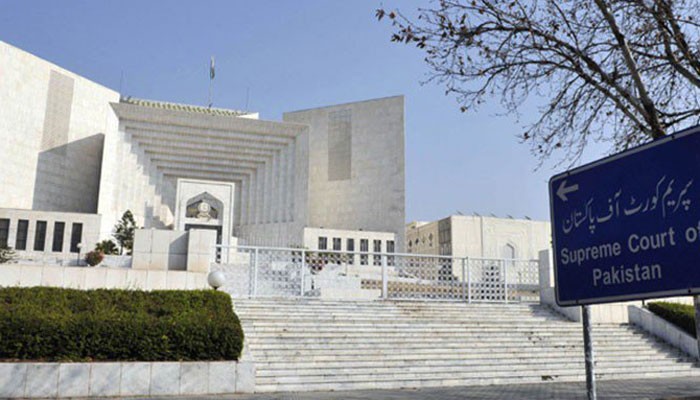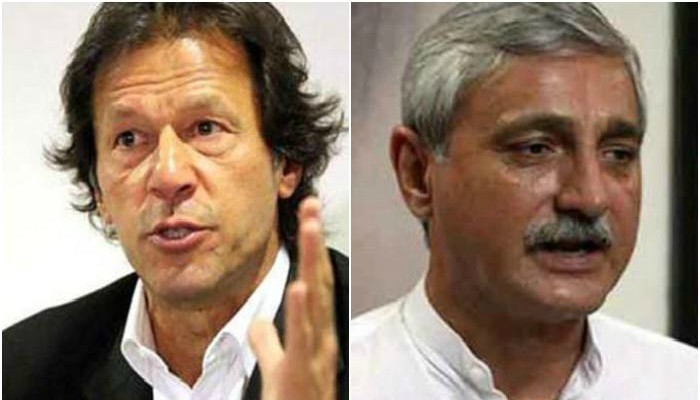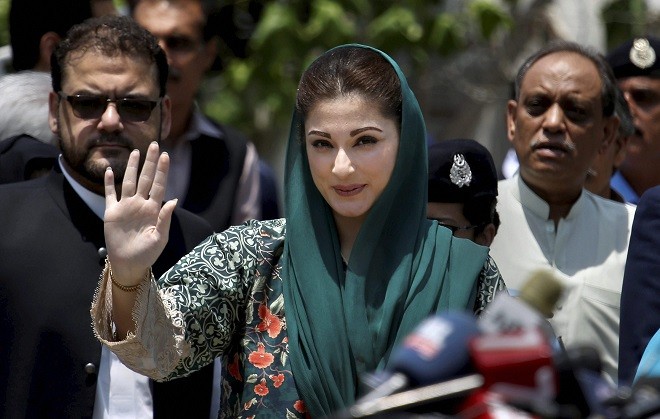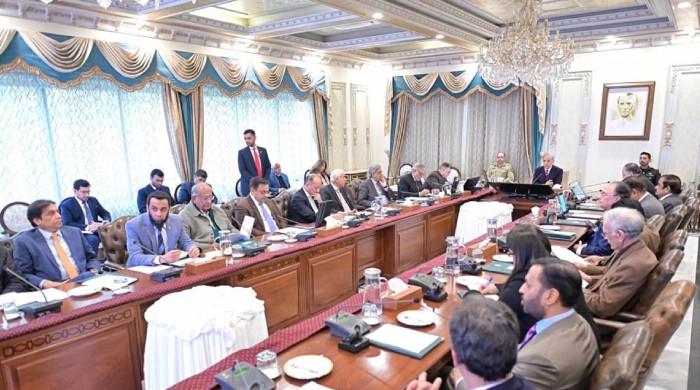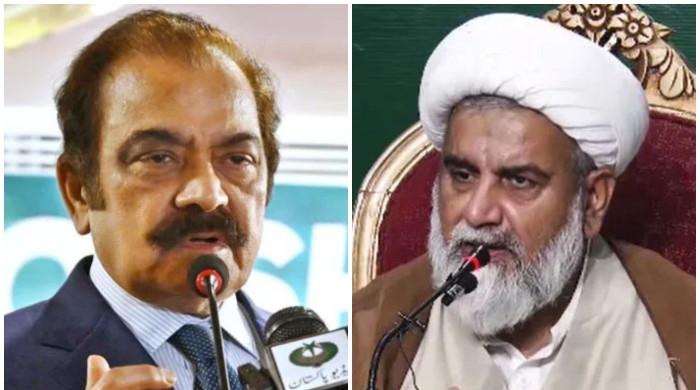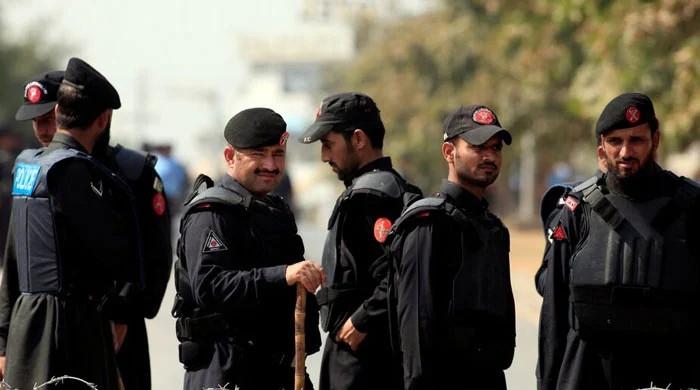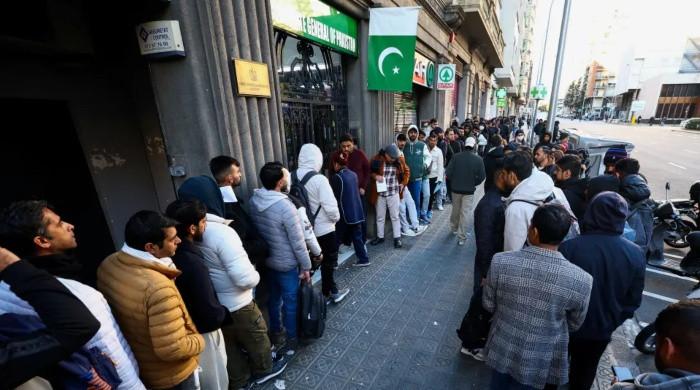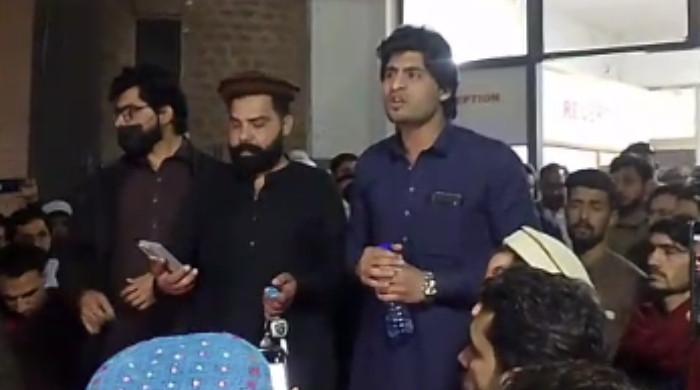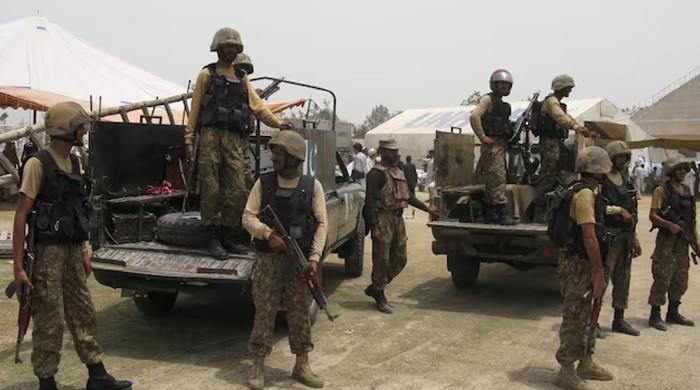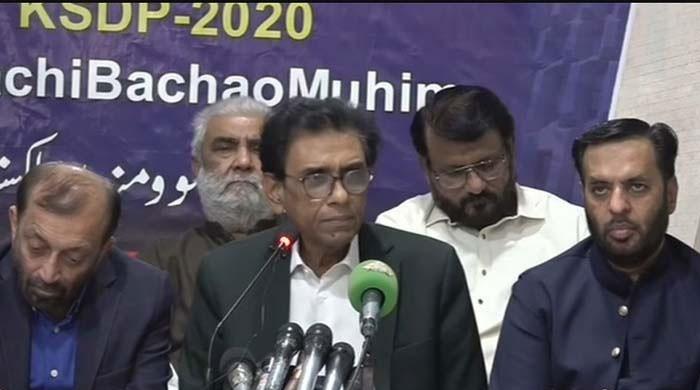An overview of Imran, Tareen disqualification case
The case lasted for 51 hearings spanning 405 days
December 15, 2017

EDITOR'S NOTE: On Friday, the Supreme Court disqualified PTI Secretary General Jahangir Tareen but ruled in favour of chairperson Imran Khan in its judgment on the disqualification case against the two party leaders. You can read details of the Dec 15 verdict here.
ISLAMABAD: All eyes are on the Supreme Court as the three-member bench announces its judgment today in the disqualification case against Pakistan Tehreek-e-Insaf (PTI) leaders Imran Khan and Jahangir Tareen.
The chief justice-headed bench was hearing Pakistan Muslim League-Nawaz leader Hanif Abbasi’s petition, which sought the PTI leaders' disqualification over non-disclosure of assets and offshore companies owned by the respondents.
A total of 101 hours of arguments were presented by senior counsels of both parties in around 51 hearings spanning 405 days.
Counsels from both parties cited references of more than 73 cases and also read about three dozen excerpts from judicial decisions from around a dozen countries during the hearings.
Voluminous materials consisting of around 7,000 pages were also presented before the apex court.
Naeem Bokhari, the counsel for the PTI chairman, also presented references from five different books.
The central point, in this case, remained: How did Imran accumulate millions of dollars in the West as a cricketer, and through which channels was the money transferred to Pakistan in the 1980s to help him build his Bani Gala property? Why did Imran and Tareen not declare their offshore companies in declarations submitted earlier to the Election Commission of Pakistan (ECP) and Federal Board of Revenue (FBR)?
“Supreme Court remained quite handicapped in this case. Mr Bokhari —you have yet to provide some documents to justify six per cent to seven per cent remaining money trail matters — some assets of NSL [Niazi Services Limited] were also not brought on the record," the bench stated earlier.
“You [Bokhari] have yet to answer some key questions — though we are going to reserve the judgment in this case — also in your [Mohmand's] client’s case — if we feel necessary,” observed the chief justice while concluding the hearing on November 14, 2017.
Three judges asked around 237 questions from Akram Sheikh, Abbasi's counsel, Bokhari and Sikandar Bashir Mohmand, the counsel for Imran and Tareen accordingly.
Sheikh had been trying to find similarities attached to the Panama case, where former prime minister Nawaz Sharif was disqualified by the apex court.
After the Panama case, the present case was seen as another important case in Pakistan’s judicial history, where counsels of both parties presented thousands of pages in support of their stance.
Imran's former wife Jemima Khan was named over 205 times by the judges and counsels. She remained in focus similar to the ‘Qatari letter’ which attracted the media’s attention in the Panama Papers case.
Bokhari, once, argued for a week, almost 17 long hours, and cited 152 cases including judicial precedents from 18 countries.
He took more than 45 hours to wind up his arguments while Mohmand took around 18 hours to argue before the court. Bokhari produced a plethora of documents, including the letter to Barclays manager (Ashley), different land agreements, disputed documents, some evidentiary documents of the money trail, invoices of charges paid by Jemima and a couple of new affidavits.
Mohmand produced thousands of pages, consisting of records of around 1,867 acres of agriculture land, an offshore company, and gifts received from Tareen's son Ali.
Anwar Mansoor, Imran's other counsel, spent 11 hours to convince judges that PTI was not accepting foreign funds and that the component of this case directly linked with the ECP under the Political Parties Order.
The apex court also raised questions about the authenticity of hundreds of unverified documents which came from PTI's top leadership and the law of evidence, acknowledging the importance of ‘Sadiq’ and ‘Ameen’ in the Constitution.
The petitioners and respondents focused on Articles 62, 62(1)(e-f), 63, 66, 69 and 184(3) in this disqualification case while the parties focused on Articles 62, 62(1)(e-f), 63, 66, 69 and 184(3),185, 187, 224 and 248 of the Constitution in the Panama case.
In comparison, the Panama Papers case lasted for over 126 days, where the legal counsels consumed around 111 hours of the judges during 35 hearings.
Neither Imran nor any other top-ranking party leader attended a single hearing in this case. The PTI chairman spent 94 hours in the courtroom and attended 32 of 35 proceedings in the Panama Papers case.
Similarly, ex-premier Nawaz and his children did not attend a single hearing in the Panama case.
